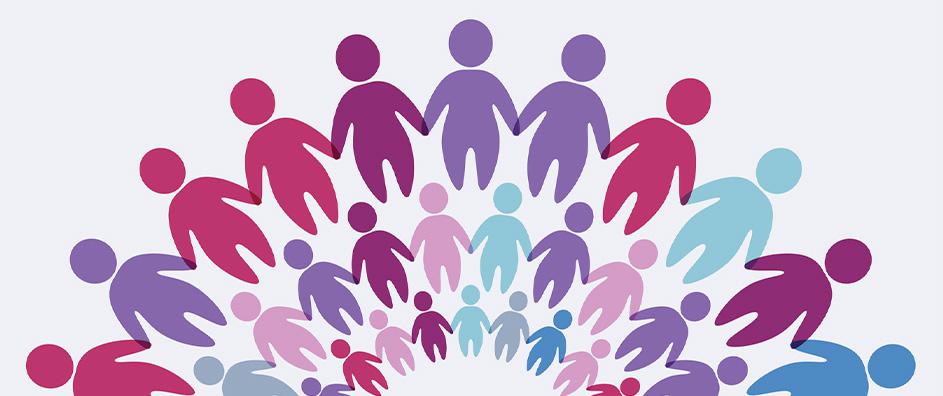The conundrum of disunity presents an intriguing paradox: how can the often divisive forces in society, which seemingly drive us apart, simultaneously serve to weave the intricate fabric of human solidarity? This thought-provoking question leads us into the rich tapestry of Bahá’í teachings, which contend that disunity can indeed play a significant role in fostering unity among humanity. Rather than viewing disunity solely as a detriment, one may explore the nuances that reveal the potential for growth and transformation through contrast and diversification. The essence of this examination lies in understanding how varying belief systems, cultural differences, and individual perspectives contribute to a collective experience that is both complex and compelling.
To initiate this exploration, it is essential to recognize the pernicious effects of disunity. Disunity often manifests in conflict, misunderstanding, and emotional discord. However, these aspects of human experience cannot be discounted as merely adverse; they can also be catalyzers of reflection and evolution. By grappling with the challenges that arise from opposing viewpoints, individuals and societies are compelled to engage in dialogue, fostering mutual understanding and respect. This process of negotiation and reconciliation prompts a deeper awareness of the multifaceted nature of truth, which in turn cultivates a more profound appreciation for diversity.
In the realm of Bahá’í philosophy, unity is an exalted goal. Yet, Bahá’í teachings assert that genuine unity emerges not through the suppression of individual differences but rather through the acknowledgment and celebration of them. The richness of varying perspectives serves as a crucible for growth; it is through the clash of ideas that one can distill wisdom and forge stronger connections. This transformative power of diversity highlights the paradox of disunity being instrumental in holding humanity together.
Consider the principle of the oneness of humanity, which is foundational to Bahá’í belief. This principle posits that all humans, irrespective of race, background, or belief, are part of a singular family. Within this framework, disunity serves as a catalyst for recognizing shared humanity. The struggles that arise due to differing perspectives often surface deep-seated assumptions and biases. In confronting these disparities, individuals are encouraged to transcend their comfort zones and engage with those who differ from them. Such interactions not only bridge gaps but also foster collective empathy. Thus, disunity can engender a sense of kinship among disparate groups, uniting them in their quest for mutual understanding.
Furthermore, embracing disunity provides an opportunity for personal and collective enlightenment. It invites introspection—an essential component of spiritual growth. Through the lens of Bahá’í teachings, disunity is not a mere obstacle; it is an essential component of the human experience that prompts individuals to seek deeper truths. Disunity encourages critical questioning, prompting individuals to examine their beliefs and values. This inquiry can yield a more profound comprehension of one’s own identity as well as an appreciation for the identities of others. In this way, disunity functions as a mirror reflecting the diverse facets of the human condition.
The notion that disunity can lead to a greater understanding of unity can also be highlighted in the interrelation of communities. When disparate groups come together, often sparked by conflict, they are presented with a unique opportunity to collaborate in creating a more harmonious society. Cooperative efforts arising from the challenges of disunity can catalyze innovative solutions to common problems, thereby building relationships that transcend initial differences. This collaboration exemplifies how the interplay of disunity can lead to an emergent solidarity that reinforces the interconnectedness of humanity.
Moreover, the pedagogical aspect of disunity cannot be overlooked. Disputes and disagreements, while uncomfortable, serve as profound learning experiences. They challenge individuals to negotiate, advocate, and ultimately build consensus. This process fosters resilience and cultivates skills essential for collaborative living. Bahá’í teachings place immense value on education and knowledge acquisition, and it is through the crucible of disunity that individuals often acquire the most impactful lessons.
One might ponder whether it is possible to completely eradicate disunity in pursuit of a unified global society. While the aspiration for unity is admirable, it is critical to ponder the implications of attempting to homogenize diverse worldviews. Do we risk stifling authenticity in our pursuit of cohesion? Bahá’í teachings advocate for an embrace of diversity as an intrinsic element of the human experience, elucidating that unity does not necessitate uniformity. Instead, diversity can lead to a more enriched and nuanced understanding of the world around us, fostering a society that thrives on inclusion rather than exclusion.
In conclusion, while disunity may initially appear as an obstacle to harmony, it is essential to reconceptualize it as an integral aspect of the human experience. Through the principles espoused by the Bahá’í Faith, disunity can become a vehicle for profound understanding, enriched dialogue, and deepened connections. Engaging with diverse perspectives not only expands personal horizons but also fortifies the bonds that unite humanity. Thus, the multidimensional nature of disunity plays a paradoxical role in holding humanity together, encouraging us to embrace the complexity of our shared existence.
